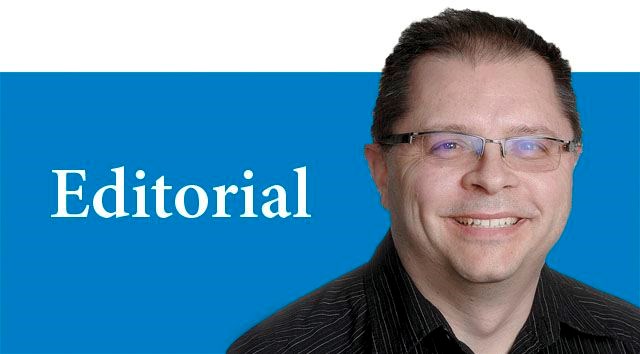Both PBS and now Macleans magazine have gravely informed their respective audiences that the United States are actually the "divided states" of America.
Scott Gilmore's piece in Macleans, published online last Friday, argues that "Red and Blue Americans have grown so dangerously far apart, they should be considered different ethnic groups."
They don't live in the same cities or even the same states. They watch different TV shows and follow different news outlets.
They share different cultural, social and religious beliefs.
Gilmore cites electoral data that shows that just 303 out of 3,113 counties saw the losing Democrat or Republican finish less than 10 per cent behind the winner. Back in 1992, there were more than 900 counties where the vote was that close.
In other words, today's candidates almost always win in a blowout.
On the surface, those divisions seem everywhere and the revolution is at hand.
Social media, they say, isn't bringing people together, it's actually making everyone anti-social, giving people the means to lash out in public to anyone with the gall to disagree with their worldview. Never mind American politics when it's right here on full display in Prince George.
Take last week's events around Scott McWalter and Hell Yeah Prince George! as an example.
For the casual observer following the Facebook comments, it seems there are only two viewpoints. Either people love McWalter and HYPG or they can't stand the guy and his Facebook page. Readers were either applauding Friday's editorial on the subject or were condemning it as unfair and a personal attack.
The noise of the applause and the condemnation drowns out the more complicated picture. Many people rose to McWalter's defence but criticized the recent tone HYPG had taken while others said they loved HYPG but either didn't like or didn't even know McWalter. Others stated McWalter is a good guy who did a dumb thing.
In other words, individual views were complicated and nuanced, just like the individuals holding those views.
It's the exact same when one looks more closely at the viewpoints about what's happening in the U.S. or Donald Trump or refugees or protests about Islamophobia or any other issue of the day.
People see what they want to see and hear what they want to hear is hardly a revelation.
Individuals do that not just with their views but throughout their daily lives. How else are people able to tune out the background in a crowded, noisy room to focus on the person speaking to them?
How else are people able to drive home safely without reading every distracting billboard they see along the way?
For journalists wanting to tell the story about the "divided states" of America, they're looking for evidence to prove their thesis, rather than as scientists open to the possibility of an unexpected result.
The outcome is that commentators looking for a black/white, red/blue, urban/rural divide are sure to find one, a classic case of confirmation bias.
Either/or provides such a compelling narrative and it seems to explain so much of what is happening in the world. Unfortunately, that analysis is a mile wide and an inch deep. Media pundits - present company included - have been easily seduced by what looks like a broadening chasm throughout society, not just in the U.S. but here in Canada and in places like Prince George.
For starters, the divide was already there and has been for a long time. America's states have been so divided, they fought a civil war 150 years ago. As Canada celebrates its 150th anniversary, it's important to recall it nearly broke apart twice in the lifetime of a majority of Canadians.
There are divides over race, religion, class, geography and many others, so it's ridiculously easy to see nothing but divisions between people.
Which begs the question of why do Canada and the United States continue to exist? Why does law and government stay in effect?
The idea of a homogenous, unified America from a time long ago, where everyone watched the same TV shows and worshipped at the same churches, is as ridiculous as the notion of a prototypical Canadian.
Would such a person be from Newfoundland, Quebec, Ontario or Alberta?
What makes America America, Canada Canada and Prince George Prince George is how individual and social divides have come together to forge communities and nations. Those differences are not a sign of weakness or a decaying society, they are the strong bonds of a healthy democracy.
That's not to say that those divisions and divides don't cause great pain and hardship on many individuals and groups. Those concerns shouldn't be glossed over or romanticized but nor should they be trivialized into black-white, one-or-the-other, with-me-or-against-me scenarios. Nobody likes to be summarized by labels because they reveal nothing and hide everything.
Millions of Americans who voted for Barack Obama twice voted for Trump. Millions of Canadians who voted for Stephen Harper voted for Justin Trudeau in the last Canadian election. Christians are working hard to help Muslim refugees.
Many Israelis want Palestinians to have their own country. Many indigenous people and First Nation communities are in favour of mining and pipelines.
People and their views are complicated, diverse and nowhere as belligerent as their online posts would indicate.
That's a good thing.
And painfully obvious.
Yet in our divided times, any opinion other than a strident one is too easily dismissed as either naive or weak.
-- Managing editor Neil Godbout



